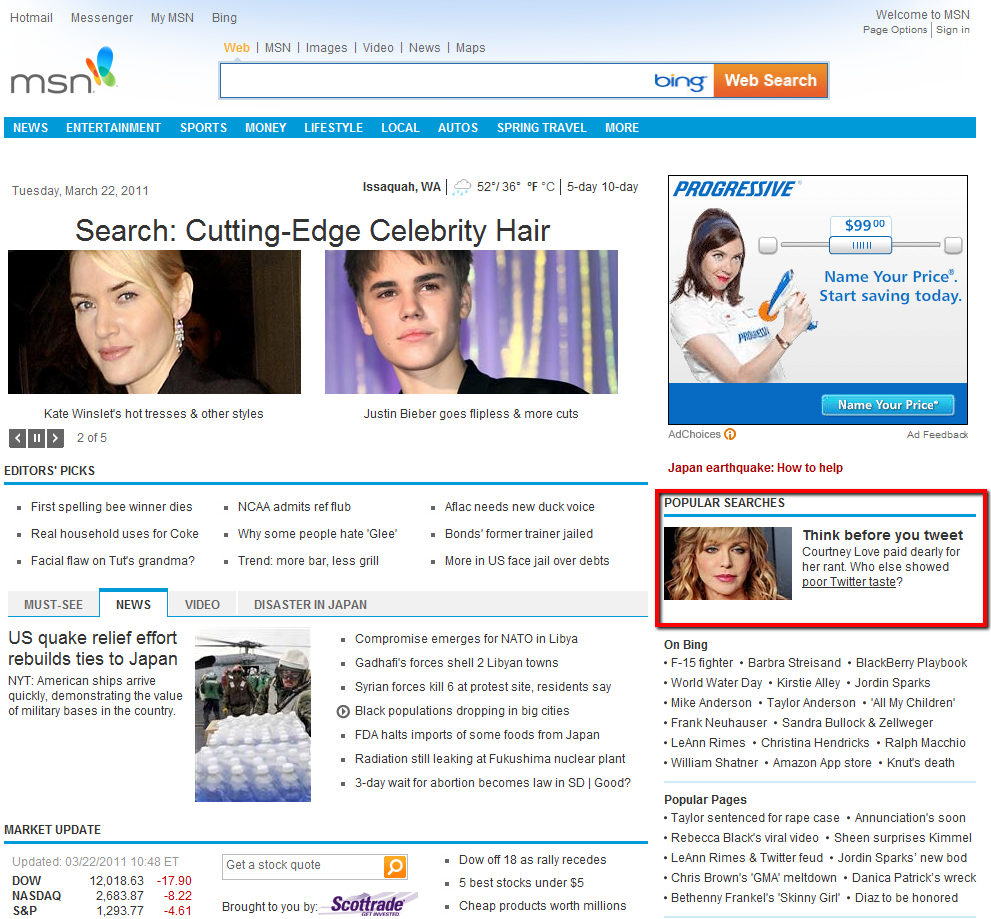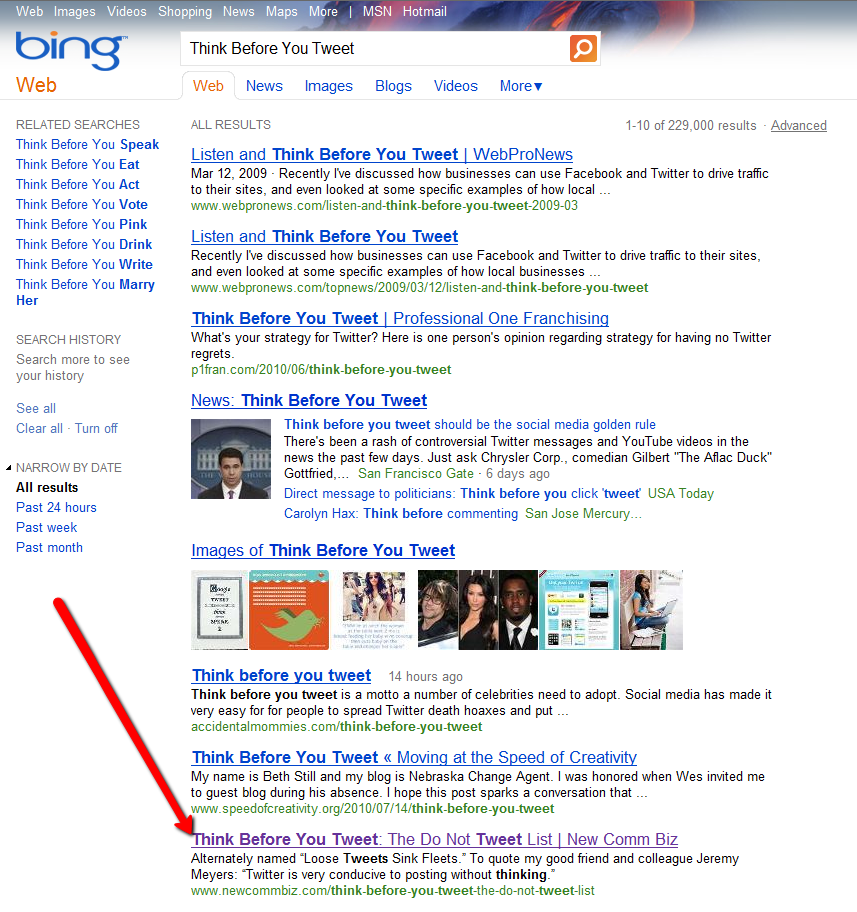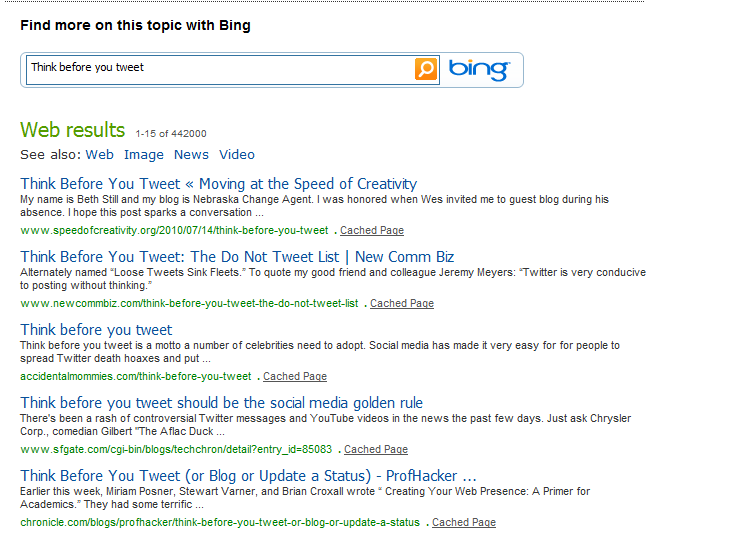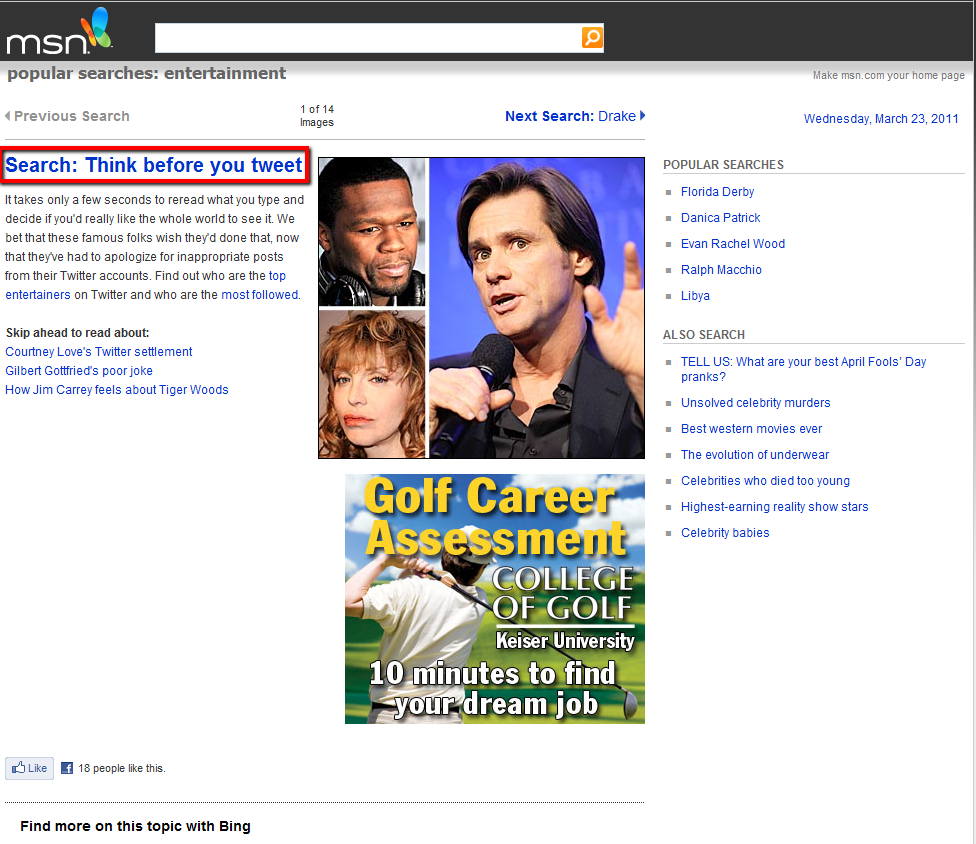Search is changing. And it’s only going to keep changing. Not only are Bing and Google adding social data to the search results and trying to return more relevant results based on your social graph, but the change doesn’t end there. Bing particularly has been pushing the envelope on what they do with all the valuable data created by search results and how they can integrate it into content.
Below is an example of one of the things Bing has been doing and the effects that has on publishers. And let’s be clear that everyone and every brand is now a publisher.
While search traffic to my site is much lower than it used to be, social media is driving a little more than half my traffic. Because I don’t write about “news” and current events that people would search for in the moment, almost all of my search traffic is being driven to my older, “long tail” content. In response to that traffic behavior I’ve learned a little something about maximizing that traffic.
MSN, Bing, Twitter and Blog Traffic
Last year I wrote: Think Before You Tweet: The Do Not Tweet List. I looked at some recent examples of employees getting in trouble for tweeting things they shouldn’t have. (It was a rather good post, if I do say so myself.)
In the below image you’ll see, highlighted on the right, that on Tuesday, MSN ran a “story” on celebrities who mis-tweeted. It was called: “Think Before You Tweet.” In full disclosure, Microsoft, Bing and MSN are clients but that had nothing to do with this happy coincidence.

Bing is heavily integrated into MSN and this particular story took you to a page with some images of recent celebrity screw ups and a quick blurb but the real content was a link to a Bing search for “Think Before You Tweet” as well as the search results displayed below that.
Here’s the resulting MSN page…
…where the title (above) is hyper-linked to the search result (below), where my post falls in the 8th spot, but…

…search results are also displayed below the fold. Where I am listed as the 2nd result. w00t!

So what is the impact to the publisher for this? If you were a major blog or website, probably not much. If you’re a little hobby blog like this one then it can mean an additional 2X the normal traffic. Over the course of 2010, I averaged 300 page views a day. So far this year, I was tracking about the same. But my Think Before You Tweet post generated over 600 uniques in the day that story ran, on top of my normal daily traffic.
And of course we’re only going to see more of this kind of re-purposing of search results.
How to get the most out of the long tail.
At first the bounce rate to my site was really high. Around 99% of the traffic that hit my site, didn’t see anything about celebrities as they scanned through and left within seconds. But one thing I’ve learned about those almost 900 older posts I’ve created, is that there’s nothing wrong with editing them later on.
So I took the top 10 list that was buried at the end of the post and moved it to the top along with the link to the blogs Facebook and Twitter sites. And it worked pretty well. My bounce rate dropped to just over 80%. (That’s averaged in with the earlier 99% bounce rate. So the bounce rate after the change would have been much lower.) Plus I drove about 10% of the traffic that came to the site after the change to the Facebook and Twitter accounts. Not bad, for people looking for celebrity train wrecks.
Lessons:
- SEO and Search are not dying like some <cough> people have suggested. For old content it still matters very much. It would probably matter more to me if I was monetizing the site or writing about news and current events.
- Adjust old content for maximum effect. The audience you initially wrote that post for are probably not the same people finding that post now. I’m not saying you have to constantly tweak your old content but if you’re getting a lot of interest around a specific piece of old content see if you can figure out why and give it a once over.
- Finally don’t be afraid to write about older topics. Watch your referrer logs and if there’s a particular topic driving a lot of traffic, write about it again. Solidifying your current place in search results is easier than trying to raise your results for a topic you don’t rank well for.
Similar Posts:
- 3 Reasons Why Social Media is Killing Search
- Twitter to SXSW: You’re Using Our Product Too Much.
- Content Farms Are Affecting News, Journalism, Search and Marketing [10 Links]
# of Comments 22
# of Comments 19
# of Comments 4
